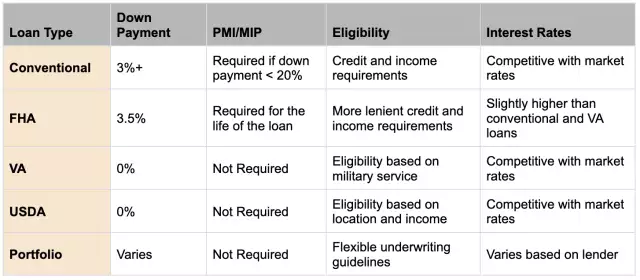Navigating Real Estate Transactions: The Essential Roles of Mortgage Brokers and Real Estate Agents
Navigating Real Estate Transactions: The Essential Roles of Mortgage Brokers and Real Estate Agents
Real estate transactions are multifaceted processes that involve a myriad of steps and require the expertise of skilled professionals. Among these, mortgage brokers and real estate agents play pivotal roles in helping clients seamlessly navigate the complex world of buying, selling, and financing properties. This comprehensive guide delves into the essential functions, skills, and compensation structures of these roles and provides insights into the diverse career paths available within the real estate industry. Whether you are a prospective buyer, seller, or aspiring professional in the field, understanding the contributions of these key players can significantly enhance your experience and outcomes in real estate transactions.
The Pivotal Roles in Real Estate Transactions
The Critical Functions of Real Estate Agents
Real estate agents are the linchpins in property transactions, serving as the primary point of contact for both buyers and sellers. They provide personalized services tailored to meet the specific needs of their clients, ensuring that each transaction progresses smoothly and efficiently.
For Buyers:
Real estate agents assist buyers in finding properties that align with their needs, preferences, and budgets. They take the time to understand the buyer's criteria, whether it's a cozy starter home, a luxurious estate, or an investment property. Agents arrange and conduct property viewings, providing valuable insights and advice during tours. They also play a crucial role in negotiating the terms of purchase, striving to secure the best possible deal for their clients. Their deep knowledge of the local real estate market and trends allows them to offer informed recommendations and help buyers make sound decisions.
For Sellers:
On the selling side, real estate agents assess the market value of properties and devise effective marketing strategies to attract potential buyers. They utilize various channels, from online listings to open houses, to showcase the property and highlight its unique features. Agents negotiate on behalf of the seller to maximize the property's selling price and ensure favorable terms. They manage the entire sales process, from initial listing to closing, providing expert guidance at each step. Their goal is to make the selling experience as stress-free and profitable as possible for their clients.
Real estate agents must possess excellent networking and negotiation skills to succeed. Building strong relationships within the community and industry enables them to connect buyers and sellers efficiently. Their ability to negotiate effectively can make a significant difference in the final terms of a transaction.

The Integral Role of Mortgage Brokers
Mortgage brokers are indispensable in the financial aspect of property transactions. They act as intermediaries between buyers and lenders, helping clients secure the financing needed to purchase a property. Mortgage brokers simplify the often overwhelming process of obtaining a mortgage, making it accessible and understandable for their clients.
Key Responsibilities:
Financial Assessments:Mortgage brokers analyze clients' financial information, including credit history, income, and debts, to assess their creditworthiness. This evaluation is crucial in determining the type of mortgage products the clients are eligible for and the terms they can expect.
Loan Comparison:Brokers compare a wide range of mortgage products from various lenders to find the best interest rates and terms tailored to the client's financial situation. This comparison ensures that clients receive competitive and favorable financing options, potentially saving them thousands of dollars over the life of the loan.
Loan Processing:Managing the complex paperwork and communications required to secure a mortgage is a significant part of a broker's role. They guide clients through the application process, ensuring all necessary documentation is submitted correctly and promptly. This includes coordinating with lenders, appraisers, and other parties involved in the loan approval process.
Mortgage brokers must have a thorough understanding of the lending market and possess strong analytical skills. Their ability to navigate financial products and regulations is essential in providing clients with sound advice and optimal mortgage solutions.

Compensation and Work Environments
Both real estate agents and mortgage brokers primarily operate on a commission-based compensation structure. Their earnings are directly linked to their productivity and success in closing deals or securing loans.
Real Estate Agents:
Real estate agents typically earn a percentage of the property’s sale price, known as a commission. This commission is usually split between the buyer's agent and the seller's agent and can vary depending on the terms negotiated with the client and the brokerage. Because their income depends on successful transactions, agents are highly motivated to provide excellent service and achieve favorable outcomes for their clients.
Agents often have flexible schedules but must be available to meet clients, show properties, and negotiate deals, often outside of traditional business hours. They spend considerable time traveling to meet clients and view properties, requiring a high level of mobility and adaptability.
Mortgage Brokers:
Mortgage brokers receive a commission based on the mortgage amount they facilitate. This commission can be paid by the lender, the borrower, or a combination of both, depending on the agreement and regulations. Brokers must balance providing cost-effective services to their clients while ensuring they receive adequate compensation for their expertise and efforts.
Brokers typically work from offices, focusing on financial analysis, client consultations, and coordinating with lenders. While their work is less physically mobile than that of real estate agents, they must be adept at managing multiple clients and maintaining up-to-date knowledge of the financial products available in the market.
Licensing and Educational Pathways
Entering the real estate field requires specific state licenses, which are obtained after passing relevant exams and completing mandatory educational courses. Continuous education is crucial for maintaining these licenses and staying informed about market trends and regulatory changes.
Real Estate Agents:
Real estate agents often come from backgrounds in marketing, sales, or customer service, which enhance their skills in client interaction and negotiation. To become licensed, prospective agents must complete a pre-licensing course and pass a state licensing exam. This education covers topics such as property laws, ethics, and real estate practices. Many states also require continuing education to keep licenses active and ensure agents remain knowledgeable about the latest industry developments.
Mortgage Brokers:
Mortgage brokers typically have backgrounds in finance, banking, or economics, providing them with the critical financial insight necessary for their roles. To become a licensed mortgage broker, candidates must complete pre-licensing education and pass the Nationwide Multistate Licensing System & Registry (NMLS) exam. This rigorous process ensures that brokers have a deep understanding of federal and state mortgage regulations. Like real estate agents, brokers must also engage in ongoing education to stay current with changes in lending laws and market conditions.
Exploring the Real Estate Market Trends
Staying informed about real estate market trends is essential for professionals in the field. Both agents and brokers must keep abreast of changes in property values, buyer preferences, and the overall economic environment to advise their clients accurately and make strategic decisions.

Market Trends Impacting Real Estate:
Property Value Fluctuations:Understanding how property values rise and fall is crucial for advising clients on the best times to buy or sell. Market conditions such as supply and demand, economic stability, and interest rates all play significant roles in determining property prices.
Buyer Preferences:Trends in what buyers are looking for can shift rapidly. For example, the increased demand for home offices and outdoor spaces has been a significant trend in recent years. Real estate professionals must stay tuned to these shifts to help clients find properties that meet current market demands.
Economic Environment:The broader economic context, including employment rates, consumer confidence, and inflation, affects the real estate market. Professionals need to understand how these factors influence buying power and financing options for their clients.
Technological Advancements:The adoption of technology in real estate transactions, from virtual tours to AI-driven analytics, is transforming how agents and brokers operate. Staying updated on these technological trends can provide a competitive edge and enhance service delivery.

The Most Comprehensive Tips for All Aspects of Real Estate Transactions
Success in real estate transactions requires a combination of knowledge, skills, and adaptability. Here are some comprehensive tips for both real estate agents and mortgage brokers to excel in their roles:
Stay Informed:Keeping up with the latest market trends and regulatory changes is essential. This knowledge allows you to provide accurate and timely advice to your clients, positioning you as a trusted expert in your field.
Develop Strong Networking Skills:Building and maintaining a robust professional network can open doors to potential clients and collaboration opportunities. Networking with other industry professionals, such as attorneys, inspectors, and appraisers, can also enhance the services you offer to clients.
Understand Financial Aspects:A deep understanding of the financial components of real estate transactions is crucial. For agents, this includes knowledge of property values and market conditions. For brokers, it means staying updated on mortgage products and interest rates to offer sound financial advice.
Maintain Flexibility in Scheduling:Real estate transactions often require meetings and viewings outside of traditional business hours. Being flexible and accommodating your clients’ schedules can improve your service delivery and help you build stronger relationships.
Leverage Technology:Utilize technological tools to streamline your operations and enhance client experiences. From CRM systems to virtual property tours, technology can help you stay organized, efficient, and connected with your clients.
Essential Questions About Real Estate Transactions
Q: Why are Real Estate Agents and Mortgage Brokers Important?
Real estate agents and mortgage brokers are crucial because they streamline the complex processes of buying, selling, and financing properties. Their expertise helps clients navigate the real estate market efficiently, ensuring that transactions are completed smoothly and successfully.
Q: When Should You Consult a Real Estate Agent or Mortgage Broker?
You should consult a real estate agent when considering buying or selling a property to benefit from their market knowledge and negotiation skills. A mortgage broker is essential when you need to arrange financing for a property purchase, as they can help you secure the best mortgage terms and rates.
Q: Where Do These Professionals Operate?
Real estate agents and mortgage brokers operate in all residential and commercial real estate markets, often specializing in specific local or regional markets. Their deep understanding of these areas allows them to provide tailored services that meet the unique needs of their clients.
Q: What Qualifications Are Necessary for These Roles?
Both real estate agents and mortgage brokers require state-specific licensing, obtained through passing exams and completing educational courses. Agents often havebackgrounds in marketing, sales, or customer service, while brokers typically come from finance or banking. Continuous education is mandatory to stay updated with industry regulations and market trends.
Q: Who Benefits from the Services of Real Estate Agents and Mortgage Brokers?
Anyone involved in buying, selling, or financing properties can benefit from the specialized services offered by real estate agents and mortgage brokers. Buyers gain access to expert advice on property selection and negotiations, while sellers receive valuable insights into pricing and marketing strategies. Those seeking financing are guided through the complexities of securing a mortgage, ensuring they obtain the best possible terms.
Q: How Do These Professionals Contribute to the Real Estate Transaction Process?
Real estate agents and mortgage brokers provide critical expertise that facilitates the real estate transaction process. Agents help clients navigate the market, negotiate deals, and manage the detailed documentation required in property transactions. Mortgage brokers assist clients in securing financing, finding the best loan products, and handling the intricate paperwork associated with mortgages. Together, they streamline the process, making it more manageable and efficient for their clients.
Real Estate News: Current Trends and Insights
Keeping abreast of the latest trends and insights in the real estate market is crucial for both professionals and consumers. The landscape of real estate is continually evolving, influenced by economic shifts, technological advancements, and changing consumer preferences. Here’s a look at some of the key trends currently shaping the industry:
Rising Interest Rates and Their Impact
Recent fluctuations in interest rates have significant implications for both homebuyers and the real estate market. Higher interest rates can increase borrowing costs, potentially cooling down buyer demand and affecting property prices. For those looking to finance a home purchase, understanding the trajectory of interest rates is essential in timing their mortgage applications to secure favorable terms.
The Shift Toward Suburban and Rural Living
The COVID-19 pandemic has accelerated a migration trend from urban centers to suburban and rural areas. Many buyers are now seeking larger homes with more outdoor space, reflecting the increased value placed on home environments due to remote work and social distancing practices. This shift has led to rising property values and increased competition in suburban and rural markets, while urban areas may see a shift in demand and pricing dynamics.
Sustainability and Eco-Friendly Homes
There is a growing demand for sustainable and energy-efficient homes, driven by both environmental concerns and cost-saving incentives. Properties featuring solar panels, energy-efficient appliances, and sustainable building materials are becoming more attractive to buyers. Real estate professionals who understand and highlight these features can appeal to eco-conscious consumers looking to reduce their carbon footprint and utility costs.
Technological Integration in Real Estate
Technology continues to transform the real estate industry, from virtual property tours to AI-driven analytics and customer relationship management systems. These tools enhance the efficiency and effectiveness of real estate transactions, providing better experiences for both professionals and clients. Staying updated on technological advancements and incorporating them into business practices can provide a competitive edge in the market.
Expert Insight
Barbara Corcoran, a renowned real estate mogul and investor, famously stated, “A funny thing happens in real estate. When it comes back, it comes back up like gangbusters.” Her words capture the resilience and dynamism of the real estate market, emphasizing the importance of staying informed and prepared for market fluctuations. Understanding these dynamics and leveraging the right strategies can lead to substantial opportunities in real estate.
The Most Comprehensive Tips for All Aspects of Real Estate Transactions
To navigate the complex world of real estate transactions successfully, consider these comprehensive tips:
Stay Informed About Market Trends:Keeping up with the latest trends in property values, buyer preferences, and economic conditions is crucial. This knowledge enables you to make informed decisions and provide accurate advice to your clients.
Develop Strong Networking Skills:Building a robust network of contacts, including other industry professionals and potential clients, is essential for success. Networking can lead to valuable referrals and collaboration opportunities, enhancing your ability to serve your clients effectively.
Understand Financial Aspects Thoroughly:Whether you’re a real estate agent or a mortgage broker, a deep understanding of the financial aspects of transactions is vital. This includes knowledge of property values, mortgage products, and the factors influencing interest rates and loan terms.
Maintain Flexibility in Scheduling:Real estate transactions often require flexibility, as clients may need to meet or view properties outside of traditional business hours. Being accommodating and available when your clients need you can set you apart and build strong relationships.
Leverage Technology for Efficiency:Utilize technological tools to streamline your operations and improve client interactions. From CRM systems to virtual tours and digital marketing, technology can help you stay organized and provide a higher level of service.
Continuous Education and Professional Development:The real estate market is dynamic, with constant changes in regulations, market conditions, and industry best practices. Engaging in continuous education and professional development ensures you remain knowledgeable and can adapt to these changes effectively.
Conclusion
Real estate transactions are intricate and require the expertise of both real estate agents and mortgage brokers to navigate successfully. These professionals provide invaluable services, from guiding clients through the complexities of buying and selling properties to securing the best financing options available. Their roles are crucial in ensuring that transactions are completed smoothly and efficiently.
Realiff.com, with its AI-driven technology and extensive listings, emerges as a top resource for both buyers and sellers in the real estate market. It offers valuable insights, market analysis, and tools that empower users to make informed decisions and negotiate effectively. Whether you are capitalizing on a buyer’s market or seeking quality homes at lower prices, Realiff.com provides the support and information you need to navigate the real estate landscape with confidence.
Barbara Corcoran’s observation about the resilience of the real estate market underscores the importance of staying informed and prepared for opportunities and challenges. By leveraging the expertise of real estate agents and mortgage brokers, along with the powerful tools available through platforms like Realiff.com, you can achieve your homeownership and investment goals with clarity and success.
Embark on your real estate journey equipped with the knowledge, resources, and professional support to navigate this complex yet rewarding landscape. Whether buying, selling, or financing, understanding the roles and contributions of real estate professionals can significantly enhance your experience and outcomes in the real estate market.






